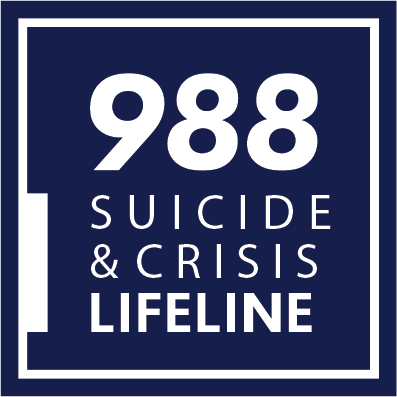Suicide. It's tough to talk about, but learning the facts and signs can save a life.
Students and Suicide
College students can face serious mental and behavioral health issues, including depression and suicidal thinking. The challenge for mental health professionals is how to identify and help them. Nationwide, fewer than 20% of students who die by suicide are past or current clients of their school's counseling center.
However, students who do connect with services often benefit significantly. UMass Amherst surveys have shown that over 80% of those who sought mental health care said services helped them stay in school and improve academic performance.
Why Do People Consider Suicide
Because each individual is unique, there is no single reason why someone has suicidal thoughts or may attempt to kill themselves. Factors that may contribute to having suicidal thoughts are:
- A major life transition that is very upsetting or disappointing
- A loss of an important relationship or the death of a loved one
- Depression, anxiety or other serious emotional troubles
- Feelings of hopelessness or despair
- Low self-esteem or shame
- Failure to live up to one's own or others' expectations
- Extreme loneliness
- News of a major medical illness
- Severe physical or emotional pain
- Alcohol or drug problems
Warning Signs
There are many verbal and nonverbal warning signs that someone may be suicidal and crying out for help. These warning signs include:
- Extended depression, sadness or uncontrolled crying
- Giving away personal or prized possessions
- Lack of interest in previously enjoyed activities
- Lack of interest in personal appearance
- Withdrawal from friends
- Lack of energy or ambition
- Changes in sleeping or eating habits
- Increased use of drugs or alcohol
- Restlessness or hyperactivity
- Increased risky behaviors
- Hopelessness and helplessness
- Remarks or social media posts like: "It'll be over soon," "I can’t take it anymore," "I have no reason to go on," "My life will never get better," or "People will be better off without me."
- Previous suicide attempts
- A recent loss or trauma from which a person is not recovering
Suicide Myths and Facts
Myth: People who talk about suicide won't really do it.
Myth: If a person's going to attempt suicide, nothing will stop them.
Fact: Most who attempt suicide remain uncertain of the decision until the final moment. Most suicidal people don't wish for death – they wish for the pain to stop.
Myth: People who take their lives by suicide are unwilling to seek help.
Fact: Studies show that more than half of suicide victims sought professional help within six months of their death.
Myth: Anyone who attempts suicide must be psychotic or insane.
Fact: Most people who die by suicide aren't psychotic, although many are depressed.
Myth: Talking about suicide may give someone the idea.
Fact: Talking about suicide doesn't give someone suicidal thoughts – the opposite is true. Bringing up the subject and talking about it is one of the most helpful things you can do. It helps a person feel understood and cared for, and shows you want to help them.
Ways to Help
- Start. Find a quiet, comfortable place to talk. Don't promise to keep your discussions secret or confidential.
- Connect. Pay attention and avoid distractions.
- Ask: Use phrases that show you want to help, such as "It seems like you're having a hard time. I'd like to hear about it," or "I wanted to check in because you haven't seemed yourself lately."
- Listen. Take in what the person says to make sure you understand fully. Ask questions, such as "When did you begin feeling like this," and "How can I best support you right now?” Don't say "I know how you feel," because you aren't that person or experiencing their feelings.
- Offer hope. Let the person know you care and that help is available. Before ending the conversation, have a next step you both agree on, like planning another time to talk or connecting with professional help.
- Encourage the person to seek help: You may want to offer to accompany them to talk to a faculty or staff member, a mental health clinician, or the UHS Walk-in Clinic.
- Help someone to stay safe: If someone is in danger, stay with them and call for help such as local police (413) 545-2121 or 911, or CCPH at (413) 545-2337.
- Talk with a clinician or someone else You trust: This way, you can share the responsibility with others, attend to your own need for support, and receive guidance about how you can continue to be of help.
Resources for Help
In an emergency, call one of the following numbers:
- UMass Police Department: (413) 545-2121
- Faculty and Staff Assistance Program: (413) 545-0350
- Emergency: 911
- Center for Counseling And Psychological Health: (413) 545-2337
- UHS Walk-in Care: (413) 577-5000
- Center for Women and Community 24-hour sexual assault and violence hotline: (413) 545-0800 – www.umass.edu/ewc
- National Suicide Prevention Lifeline: 1-800-273-TALK (8255) – or chat online at www.suicidepreventionlifeline.org.
- Crisis Text Line: Text “start” to 741-741 – www.crisistextline.org/get-help-now


